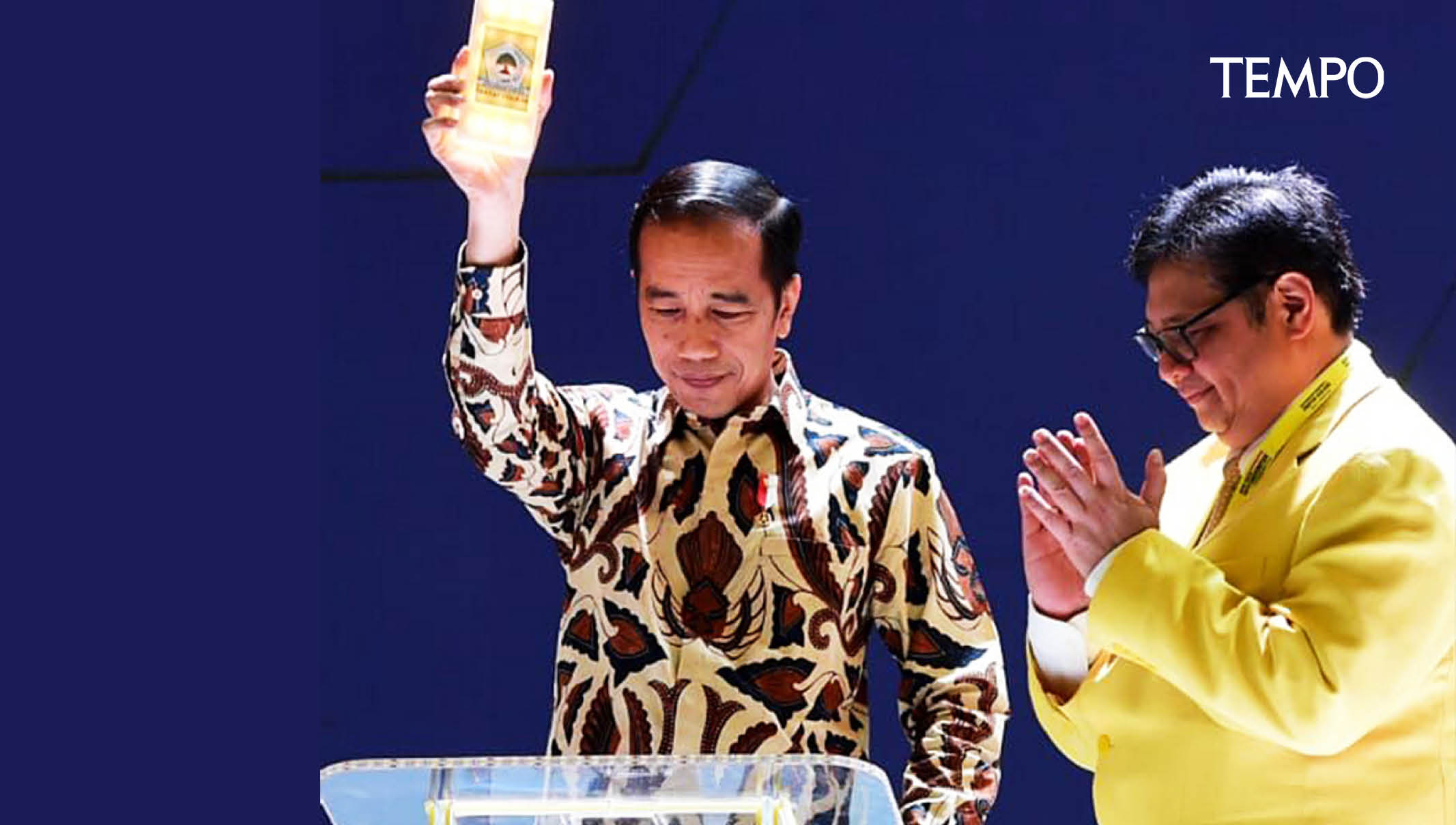Jokowi’s Hand in the Golkar Party
Jokowi has ambitions to take control of the Golkar Party. It is his new way to stay relevant to those in power.
Tempo
March 18, 2024

PRESIDENT Joko Widodo’s ambition to take over the Golkar Party by supporting Investment Minister Bahlil Lahadalia in the election for party chair is a panic response from a president about to lose power. With Jokowi’s blessing, Bahlil will compete against the other candidates, namely Golkar Chairman Airlangga Hartarto, People’s Consultative Assembly Speaker Bambang Soesatyo, and Industry Minister Agus Gumiwang Kartasasmita. If he is elected, Bahlil has promised Jokowi the post of Golkar Advisory Council chair.
During the New Order regime, although he never became chair, President Suharto was the central figure in Golkar. He engineered the organization as a means of controlling the political party system after President Sukarno’s Old Order. As chair of the Advisory Council, Suharto had absolute power in determining party policy. The chairs of the other two parties—the United Development Party (PPP) and the Indonesian Democratic Party (PDI)—were chosen based on the government’s blessing.
In 2004, when he was vice president to Susilo Bambang Yudhoyono, Jusuf Kalla was elected Golkar chair. At that time, the government coalition under the leadership of the Democrat Party, which had been established by Yudhoyono, did not have enough seats to control the legislature. Kalla joined Golkar to ‘safeguard’ government policies in the House of Representatives (DPR).
Kalla was a Golkar cadre for many years, while Jokowi does not have a long history in the party. Therefore, his endeavor to take control of Golkar at the end of his administration is for no reason other than to ensure he is still consider as important among the power elite, including in determining the composition of the forthcoming government cabinet.
Jokowi also wants Golkar to become a protective bunker. In the 10 years he has led Indonesia, many of his policies were not in line with the principles of good governance, meaning that they were a burden on state finance and were potentially against the law. Jokowi’s effort to pair Prabowo Subianto with his son, Gibran Rakabuming Raka, was his strategy to dig his claws into the administration of Prabowo if he won the election.
Golkar is indeed a tempting prize. As of the end of February, according to the General Election Commission (KPU) the party had garnered 15.13 percent of the vote, a rise of 2.82 percent from the previous election. If the KPU count is consistent, Golkar will come second in the 2024 legislative election, behind the Indonesian Democratic Party of Struggle (PDI-P).
However, the current chairman Airlangga Hartarto and his allies are not remaining silent. Airlangga is trying to prevent the holding of an extraordinary congress before the end of Jokowi’s term of office in October. He has also approached Prabowo Subianto, who according to the provisional KPU election count has won the 2024 presidential election.
Jokowi’s entry into Golkar will also disrupt Prabowo’s coalition. For Jokowi, taking control of Golkar would justify a dividend for his ‘share’ in the Prabowo government. Jokowi reportedly have asked for five ministerial posts in the new government for people close to him. Without control of Golkar, this request could simply be ignored by Prabowo, especially since Gibran’s post as vice president could be seen as more than enough to represent Jokowi’s wishes despite the in fact the vice president is little more than a spare tire.
Given these facts and Golkar’s long history, the party elite should oppose all endeavors to take control of it. The Golkar Party will still be a part of the government, but after October of this year, Jokowi will no longer be president. He will be an ordinary citizen who happens to be the father of the vice president. Golkar’s patron—even if we are not happy about a party simply parroting the president—will be Prabowo Subianto.
In the long term, Golkar would do well to distance itself from the government. A healthy party can join any kind of coalition without losing its identity. But Golkar does not yet meet this requirement. The party elites continue to betray the voices of their constituents by turning their party into a bargaining tool.
Therefore, pressure to hold an extraordinary congress before the end of Jokowi’s term of office could be a gamble for the party. Will it be able to prevent intervention from Jokowi, a president about to lose power, a lame duck still trying to walk?
